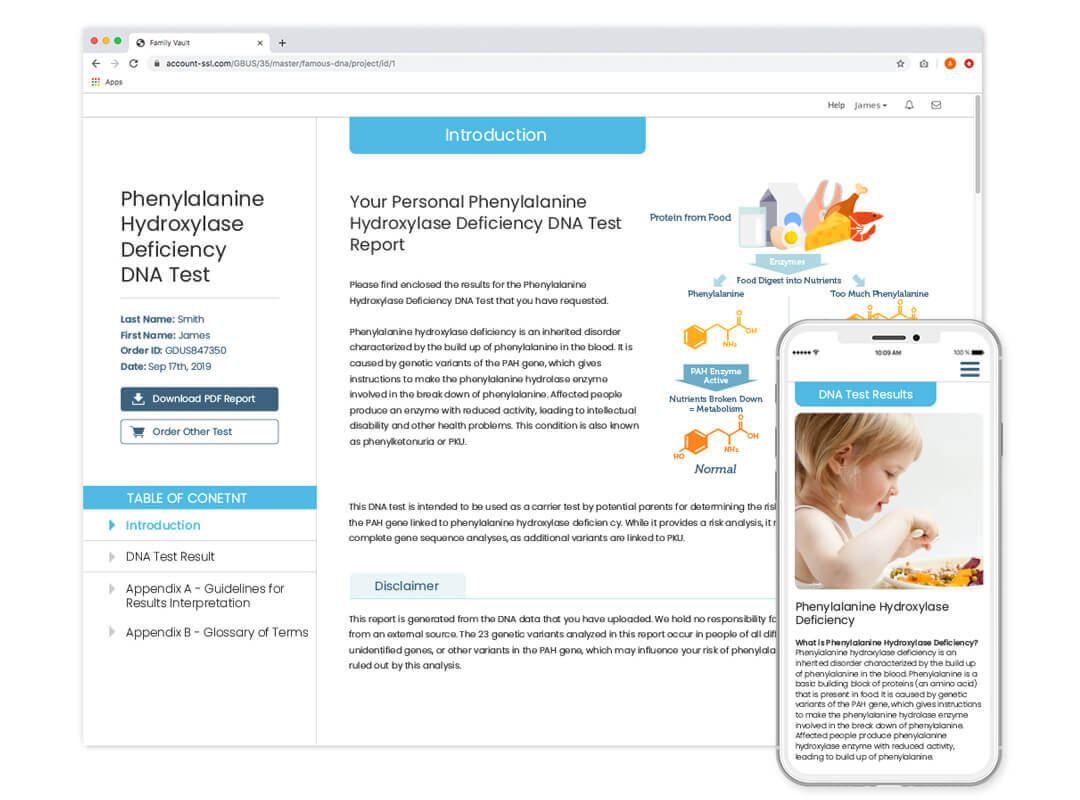Phenylalanine Hydroxylase Deficiency DNA Test
Are you a genetic carrier for phenylalanine hydroxylase deficiency? Find out with this DNA Test.
- Detects 23 PAH variants which cause phenylalanine hydroxylase deficiency
- Characterized by elevated levels of the amino acid phenylalanine
- Carrier screening test intended for couples who are planning to become pregnant
- 100% private and confidential online results
Already have DNA markers? Sign in and upload your data to view results.
Need to take the DNA Test? Order our easy-to-use swab kit.





